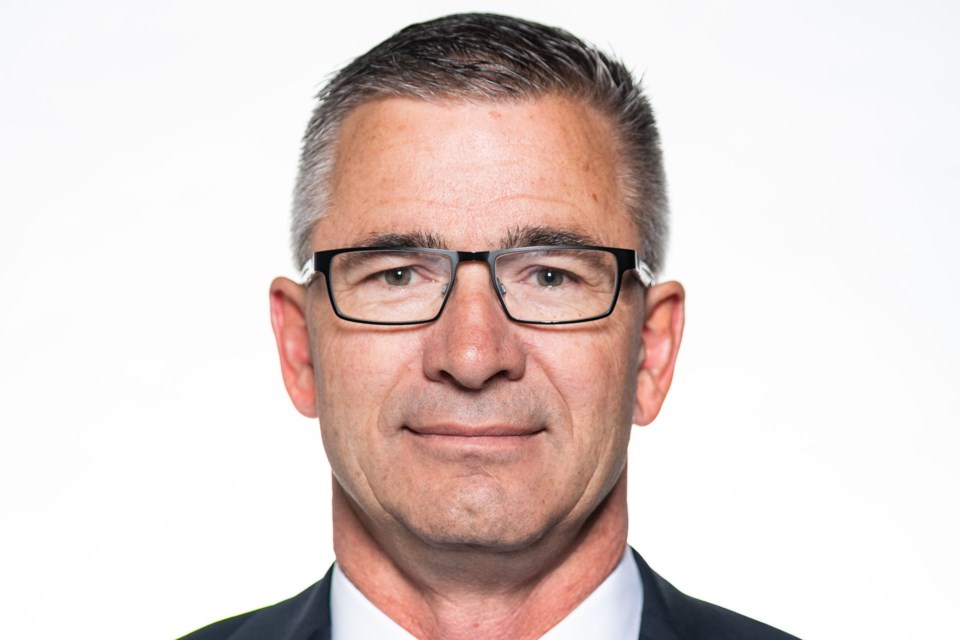Albertans should expect “a budget of restraint” this fall as the province looks to balance its books without cuts to front-line services like education, says the province’s finance minister.
Alberta Finance Minister Travis Toews co-hosted a telephone and online town hall for northern Alberta Monday night on the 2019 provincial budget. The event was part of ongoing public consultations on the budget that are set to wrap up this Friday.
“For too long, Alberta has had an overspending problem,” Toews said, one that had resulted in some $60 billion in net debt future generations would have to pay.
“That isn’t right and that’s why we’re committed to addressing the problem.”
Toews made repeated references to the MacKinnon Panel on Alberta’s Finances during the town hall, which his government struck to find ways to balance the provincial budget by 2023 without raising taxes.
Toews offered few specifics on the budget, but said his government would be “delivering a budget of restraint” that would maintain frontline services.
“At the end of the day, we have to do more with less.”
In an interview, St. Albert MLA Marie Renaud said she had heard many concerns about the budget at her office in recent weeks, with people telling her of funds for family and children’s supports being frozen, Assured Income for the Severely Handicapped (AISH) approvals delayed, and schools and municipalities uncertain as to what the budget would do to them.
Renaud said the MacKinnon report was a big hint as to where the budget was going, and said she was worried the budget would justify cuts under the guise of efficiencies and force municipalities to make some tough decisions about law enforcement and other services.
“I certainly am worried for St. Albert.”
Efficiencies or cuts?
Toews told town hall participants that the UCP government was looking for efficiencies in every department, with offices asked to restrain travel expenses and Health Minister Tyler Shandro doing a performance review of health services.
“We want to ensure we don’t have managers managing managers,” Toews said, when asked if the budget would seek to cut upper management at Alberta Health Services.
Many callers asked Toews if the province would consider a sales tax as a way to balance the budget.
Toews ruled that out, saying his party had committed to Albertans to not raise taxes and that the MacKinnon panel found Alberta spent $10.4 billion more a year than Ontario, Quebec and B.C. despite having a lower cost of living.
“That tells me that we don’t have a lack of revenue in this province. We in fact have a spending problem.”
When asked if he would promise to not cut frontline health care workers, Toews acknowledged some public sector workers had seen wage cuts or lost jobs in recent years, but added the MacKinnon report found Alberta’s public sector pay “was quite high” compared to other large provinces. The report called for public sector pay to be brought in line with that of other provinces, and Toews said, “We take that recommendation quite seriously.”
Toews said his government would not reduce the K-12 budget below 2018-19 levels but strongly hinted at changes to post-secondary, noting the MacKinnon report had found the province spent significantly more on post-secondary education per student than B.C., Quebec and Ontario.
“We are going to put a priority on programs where our students can graduate with a trade or a degree or a diploma that will ensure they can find a job,” Toews said.
When asked if the province was downloading costs onto municipalities, Toews said the MacKinnon report found Alberta spent more than other provinces on capital projects, and that he took seriously the report’s call for the province and municipalities to better prioritize infrastructure spending.
Toews is expected to table the 2019 budget Oct. 24. Residents can comment on the budget online at www.alberta.ca/budget-consultation.aspx prior to 4:30 p.m. Oct. 11.
Morinville-St. Albert MLA Dale Nally was not available for comment at press time.




